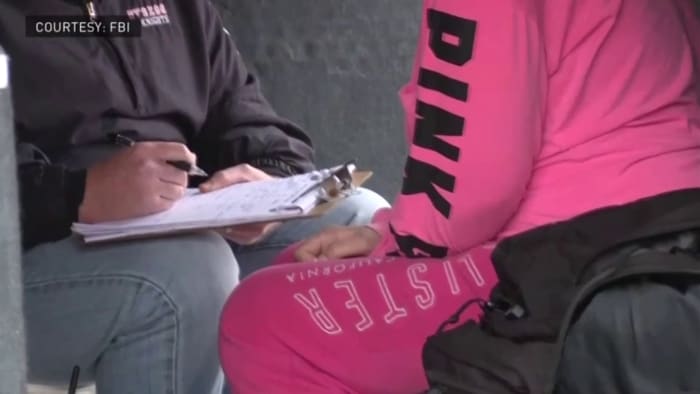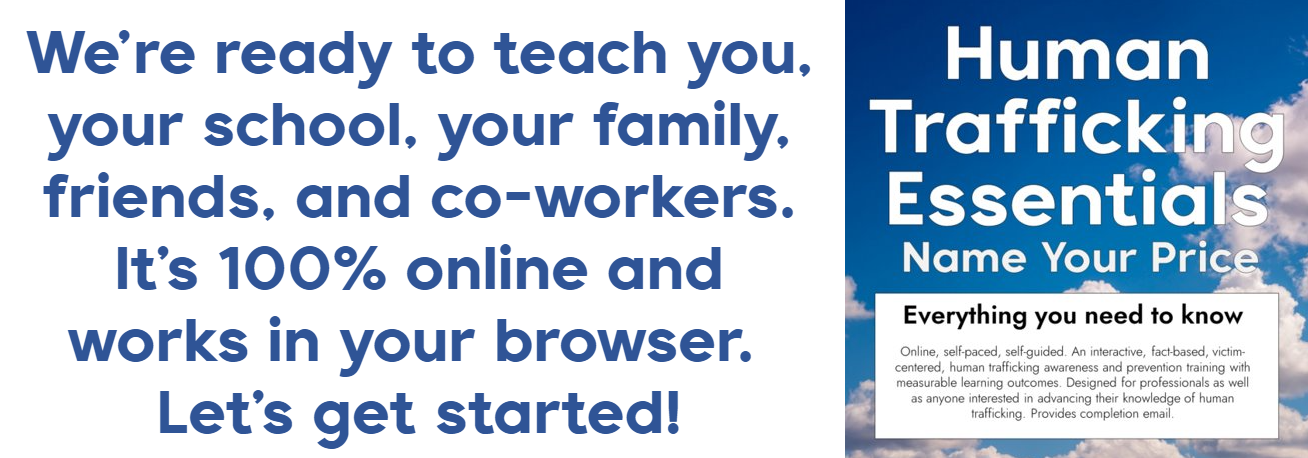Concerns at the border: How human trafficking is impacting Southwest, Central Virginia

ROANOKE, Va. – While troops from Virginia's National Guard are in Texas to aid in securing the United States' border, 10 News is looking at concerns brought on by the border crisis, like human trafficking.
Human trafficking is a problem no place and no one is immune to.
Organizations like Project Horizon in Lexington and Straight Street in Roanoke are providing resources to victims of human trafficking in Southwest and Central Virginia.
“We've had the human trafficking program for two and a half years and have served 40 primary victims and countless secondary victims, which are family or friends that have been affected by that,” said Judy Casteele, Project Horizon's executive director.
“We provide shelter care now for up to eight girls at a time rescued in Virginia for up to a year at a time,” said Keith Farmer, director of Straight Street.
According to the National Human Trafficking Hotline, during the year 2021, there were reportedly 179 victims of human trafficking in Virginia.
The organization also reports that 81% of reported cases in 2021 involved people not from the United States.
That's why Project Horizon offers unique services for non-English speakers.
While both Project Horizon and Straight Street offer services for victims, they're also focused on education in hopes of stopping the cycle of human trafficking before it's too late.
“We want to do everything possible to prevent trafficking from taking place. We have a program for our staff to go into schools to provide human trafficking awareness training,” said Farmer.
“And we work closely with the truck stops in the area doing education with their staff, on what trafficking is about, how to spot it,” said Casteele.
Experts said some signs that could signal someone is being trafficked include nervousness around a person they're with, not answering questions themselves when asked and important documents are being held onto by someone else.
This “Eyes on Trafficking” story is reprinted from its original online location.
Fair Use Notice: The PBJ Learning Knowledge Vault is dedicated to advancing understanding of various social justice issues, including human trafficking and related topics. Some of the material presented on this website may contain copyrighted material, the use of which has not always been specifically authorized by the copyright owner. We are making such material available in our efforts to promote education and awareness of these important issues. There is no other central database we are aware of, so we put this together for both historical and research purposes. Articles are categorized and tagged for ease of use. We believe that this constitutes a ‘fair use' of any such copyrighted material as provided for in section 107 of the US Copyright Law. In accordance with Title 17 U.S.C. Section 107, the material on this site is distributed without profit to those who have expressed a prior interest in receiving the included information for research and educational purposes. For more information on fair use, please visit: “17 U.S. Code § 107 – Limitations on exclusive rights” on Cornell Law School's Legal Information Institute.
 ABOUT PBJ LEARNING
ABOUT PBJ LEARNING
PBJ Learning is a leading provider of online human trafficking training, focusing on awareness and prevention education. Their interactive Human Trafficking Essentials online course is used worldwide to educate professionals and individuals how to recognize human trafficking and how to respond to potential victims. Learn on any web browser (even your mobile phone) at any time.
More stories like this can be found in your PBJ Learning Knowledge Vault.
EYES ON TRAFFICKING
This “Eyes on Trafficking” story is reprinted from its original online location.
ABOUT PBJ LEARNING
PBJ Learning is a leading provider of online human trafficking training, focusing on awareness and prevention education. Their interactive Human Trafficking Essentials online course is used worldwide to educate professionals and individuals how to recognize human trafficking and how to respond to potential victims. Learn on any web browser (even your mobile phone) at any time.
More stories like this can be found in your PBJ Learning Knowledge Vault.

